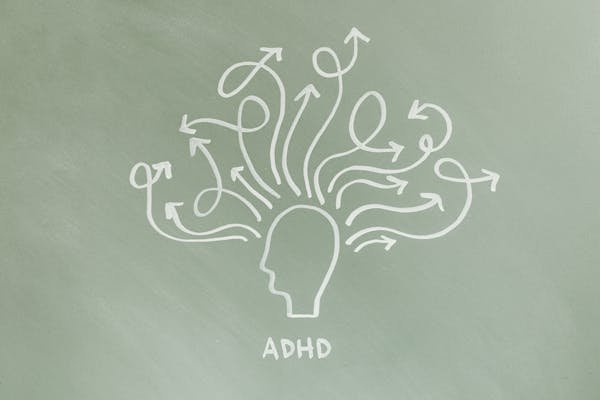Talking to Your Doctor About Cannabis for ADHD: A Practical Guide

Living with Attention Deficit Hyperactivity Disorder (ADHD) can be challenging, and finding the right treatment approach is often a journey of trial and error. As interest in medical cannabis grows, some individuals with ADHD are curious about its potential to help manage symptoms such as inattention, impulsivity, or hyperactivity. However, discussing cannabis with your doctor can feel daunting, especially given its complex legal status and the limited research available. This guide provides practical steps for approaching your healthcare provider about cannabis for ADHD in the UK, including key questions to ask and tips for integrating it with existing treatments.
Why discuss cannabis with your doctor?
In the UK, cannabis-based medicinal products (CBMPs) are legal for certain medical conditions under specialist prescription, but ADHD is not currently an approved indication for NHS prescriptions. Private clinics, however, may prescribe CBMPs for ADHD in specific cases, provided a specialist deems it appropriate. Discussing cannabis with your doctor is crucial to:
- Ensure safe use, avoiding interactions with ADHD medications like methylphenidate or atomoxetine.
- Understand the legal framework and access pathways (e.g., private clinics like Releaf or Sapphire Medical).
- Explore whether cannabis aligns with your treatment goals, given the limited but emerging evidence on its effects on ADHD.
A transparent conversation with your doctor can help you make informed decisions and avoid unregulated or illegal sources of cannabis, which may pose health risks.
Step 1: Prepare for the conversation
Before your appointment, take time to prepare. This will help you feel confident and ensure the discussion is productive.
Reflect on your symptoms and goals
- Identify specific ADHD symptoms you hope cannabis might address (e.g., difficulty focusing, restlessness, or anxiety often co-occurring with ADHD).
- Note your current treatments (medications, therapy, lifestyle changes) and their effectiveness or side effects.
- Consider your reasons for exploring cannabis, e.g., curiosity about CBD for anxiety or THC for hyperactivity, and how it might fit into your treatment plan, especially if you’ve already completed a full spectrum ADHD test or detailed clinical assessment.
Research the basics
- Familiarise yourself with key terms:
- CBD (Cannabidiol): Non-psychoactive, often used for anxiety or sleep issues, available over-the-counter in the UK (up to 0.2% THC).
- THC (Tetrahydrocannabinol): Psychoactive, available only via prescription for medical use.
- CBMPs: Regulated cannabis-based medicines prescribed by specialists.
- Understand that evidence on cannabis for ADHD is limited. A 2023 systematic review in Frontiers in Psychiatry found small studies suggesting CBD or THC may improve focus or reduce hyperactivity in some ADHD patients, but larger trials are needed.
- Be aware of potential risks, such as cognitive impairment, dependency, or worsening anxiety in some users.
Check your doctor’s perspective
- Some GPs may be unfamiliar with CBMPs or hesitant due to stigma or lack of NHS funding for ADHD-related prescriptions.
- If your GP seems unreceptive, consider asking for a referral to a specialist (e.g., a psychiatrist or a private cannabis clinic).
Step 2: Start the conversation
Approach the discussion respectfully and collaboratively. Your doctor is there to help, and framing the conversation as a partnership can set a positive tone.
How to bring it up
- Be direct but open: “I’ve been reading about medical cannabis and its potential for managing ADHD symptoms. I’d like to understand if it could be an option for me.”
- Share your context: Mention specific symptoms or challenges (e.g., “I struggle with impulsivity despite my current medication”) and why you’re curious about cannabis.
- Acknowledge the complexity: “I know the research is still developing, but I’d value your thoughts on whether cannabis might complement my treatment.”
Stay open to feedback
- Your doctor may express concerns about cannabis, such as its psychoactive effects or lack of robust evidence for ADHD. Listen carefully and ask for clarification if needed.
- If they’re dismissive, gently ask, “Could we explore this further, or would you recommend a specialist who could advise me?”
Step 3: Ask the right questions
To make the most of the conversation, ask targeted questions to gather practical insights. Here are some suggestions:
- Is medical cannabis a suitable option for my ADHD symptoms?
- This opens the door to discussing whether cannabis aligns with your specific needs (e.g., reducing anxiety vs. improving focus).
- What are the potential benefits and risks for someone with ADHD?
- Ask about evidence-based benefits (e.g., CBD for co-occurring anxiety) and risks (e.g., THC’s impact on memory or motivation).
- Could cannabis interact with my current ADHD medications?
- For example, cannabis may amplify side effects of stimulants or interact with antidepressants often prescribed for ADHD comorbidities.
- What types of cannabis products might be appropriate?
- Discuss options like CBD oils, THC-dominant prescriptions, or balanced CBMPs, and whether inhalation, edibles, or oils are best.
- How would we monitor its effects if I were to try it?
- Ask about tracking symptoms, adjusting doses, or scheduling follow-ups to ensure safe use.
- Can you refer me to a specialist or clinic for further evaluation?
- If your GP can’t prescribe CBMPs, they may refer you to a private clinic or psychiatrist experienced in medical cannabis.
- What are the legal and practical steps for accessing medical cannabis in the UK?
- Clarify whether you’d need a private cannabis prescription and the associated costs, as NHS prescriptions for ADHD are rare.
Step 4: Discuss integration with existing treatments
If your doctor agrees that cannabis might be worth exploring, discuss how it could fit into your current ADHD management plan.
Complementing medications
- Ask whether cannabis could be used alongside stimulants (e.g., methylphenidate) or non-stimulants (e.g., atomoxetine). For example, low-dose CBD might help with anxiety without significant interactions.
- Discuss tapering or adjusting current medications if cannabis is introduced, under close medical supervision.
Incorporating non-pharmacological strategies
- Explore how cannabis might work with therapy (e.g., cognitive behavioural therapy) or lifestyle changes (e.g., exercise, mindfulness).
- For instance, CBD could support relaxation during mindfulness practice, while THC might help with evening restlessness.
Setting realistic expectations
- Emphasise that you’re not seeking a “cure” but rather a tool to manage specific symptoms.
- Agree on a trial period with clear goals (e.g., improved focus during work hours) and a plan to reassess.
Step 5: Get in touch with us!
MARUCANNA is a medical cannabis clinic in the UK, offering online consultations for patients seeking CBMPs for conditions like ADHD, chronic pain, or migraines. Here’s a step-by-step guide to obtaining a prescription through MARUCANNA:
- Check eligibility:
- Complete our free eligibility checker. This involves filling out a short questionnaire about your medical history, ADHD diagnosis, and previous treatments.
- MARUCANNA assesses eligibility based on whether you have a qualifying condition (ADHD may qualify if other treatments have failed) and have tried at least two conventional treatments without success.
- Submit medical records:
- If eligible, MARUCANNA will request your Summary Care Record (SCR) from your GP, which includes your medical history and current medications. You can provide this yourself or authorise MARUCANNA to contact your GP.
- Ensure your ADHD diagnosis is documented, as MARUCANNA requires a confirmed diagnosis from a licensed healthcare professional.
- Book a virtual consultation:
- Schedule an online appointment with a MARUCANNA specialist doctor, who is registered on the General Medical Council’s Specialist Register. The consultation typically lasts 30 minutes and costs around £100–£200 (check our pricing page).
- During the consultation, discuss your ADHD symptoms, treatment history, and why you’re interested in cannabis. The doctor will assess whether CBMPs are suitable, considering factors like your response to prior treatments and potential risks (e.g., THC’s impact on cognitive function).
- Receive a prescription:
- If approved, the specialist will issue a physical prescription for a CBMP (e.g., CBD oil, THC-dominant flower, or a balanced product), tailored to your needs.
- You must collect your medication within 28 days of the prescription date. MARUCANNA’s courier service arranges discreet home delivery after you pay online via a secure link (credit card or PayPal).
- Follow-up appointments:
- MARUCANNA requires regular check-ins (e.g., quarterly) to monitor your progress and adjust your prescription if needed. You’ll complete questionnaires about your symptoms and treatment effects to support this process.
- To maintain your prescription, schedule a follow-up appointment 10 days before your medication runs out. Contact MARUCANNA via email (info@) or phone (0121 5372393) to arrange this.
- Costs and considerations:
- Consultation fees and medication costs vary (typically £50–£200 monthly for medication, depending on dosage and product). MARUCANNA does not control pharmacy prices, so confirm costs with the dispensing pharmacy.
- Provide a photo ID and National Health Number when registering, as these are required to verify your identity.
Step 7: Follow up and stay safe
If you begin using cannabis, maintain open communication with your doctor or MARUCANNA’s team:
- Track effects: Keep a symptom diary noting changes in focus, mood, or side effects like drowsiness.
- Report issues: Inform your doctor about adverse effects, such as increased anxiety or cognitive fog, which may require dose adjustments.
- Stay legal: Only use cannabis obtained through regulated channels (e.g., MARUCANNA’s partnered pharmacies or reputable CBD retailers) to avoid legal risks.
Final thoughts
Talking to your doctor about cannabis for ADHD can feel intimidating, but with preparation and the right questions, it can be a constructive step towards personalised care. In the UK, medical cannabis is a tightly regulated option, and your doctor or a specialist can guide you through its potential benefits and risks. By approaching the conversation collaboratively, you can explore whether cannabis has a place in your ADHD management plan while prioritising safety and evidence-based care.


